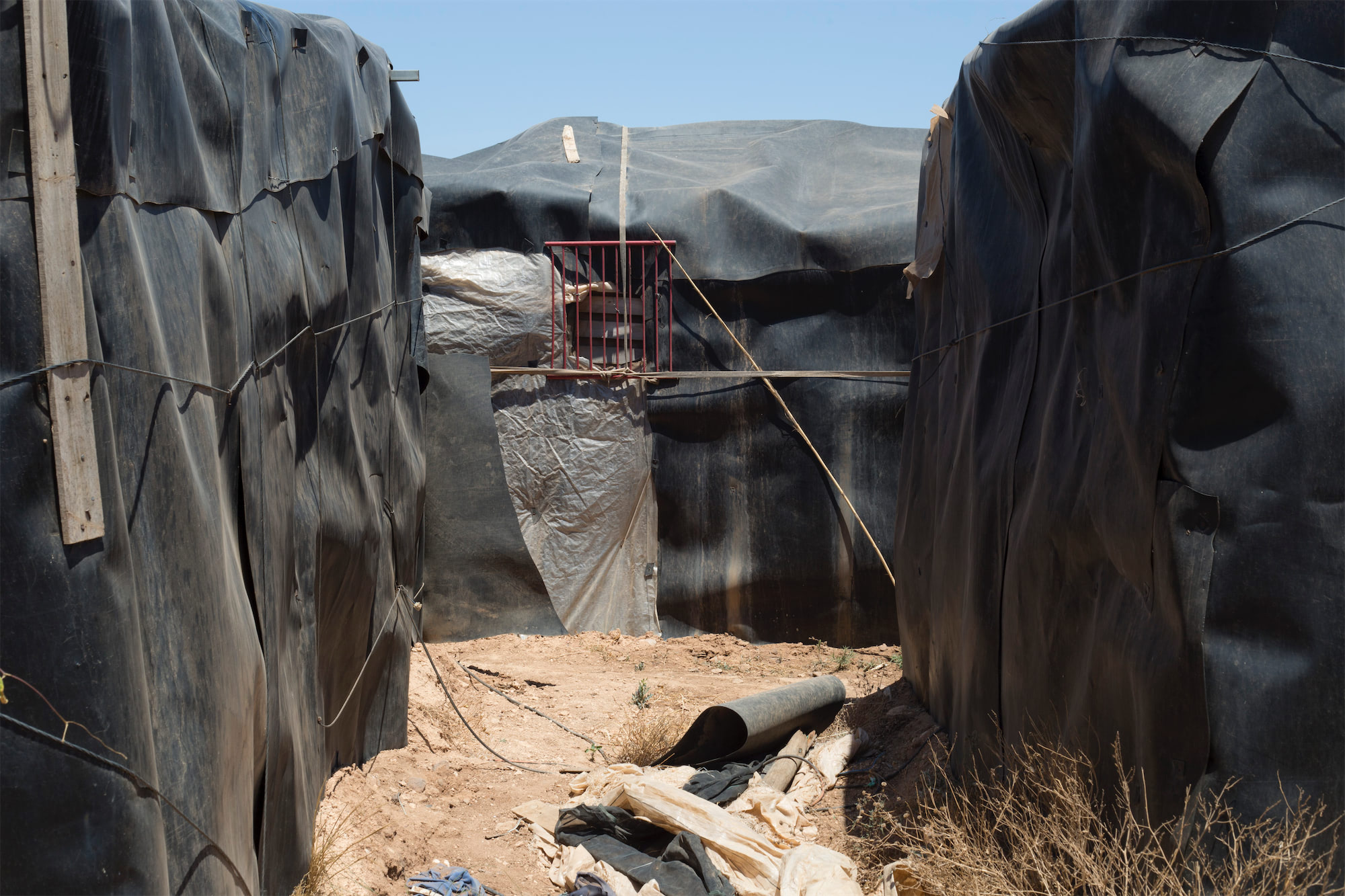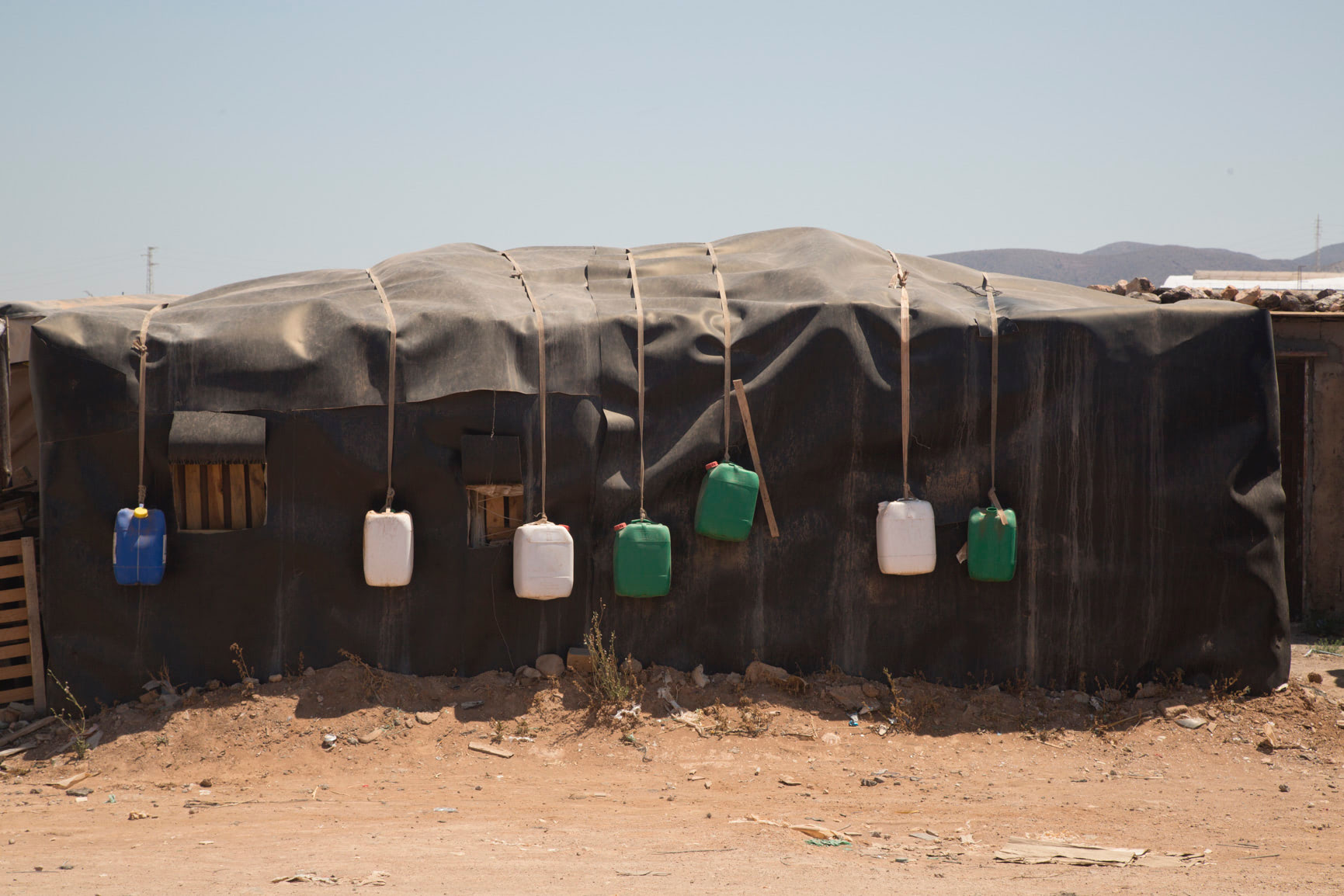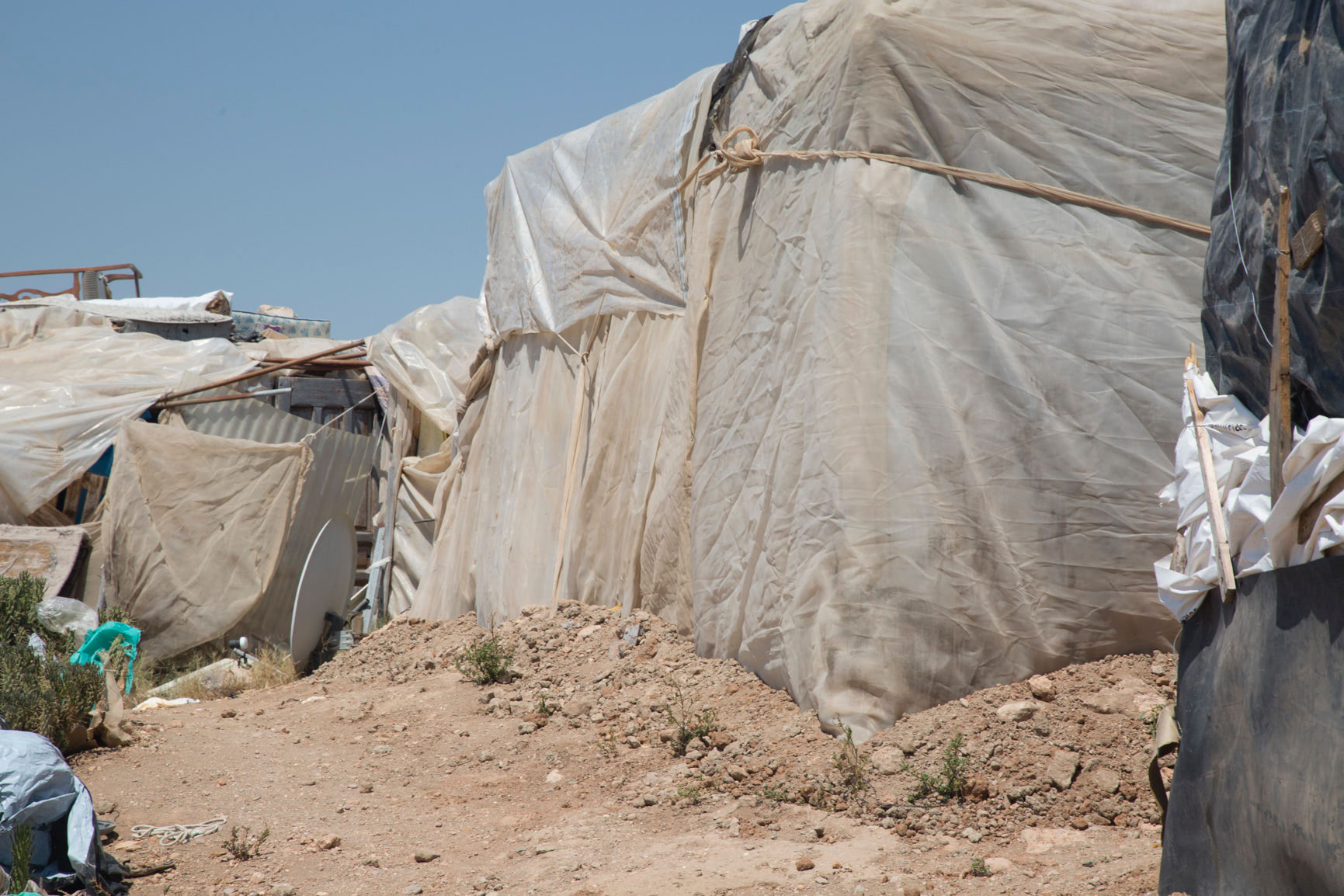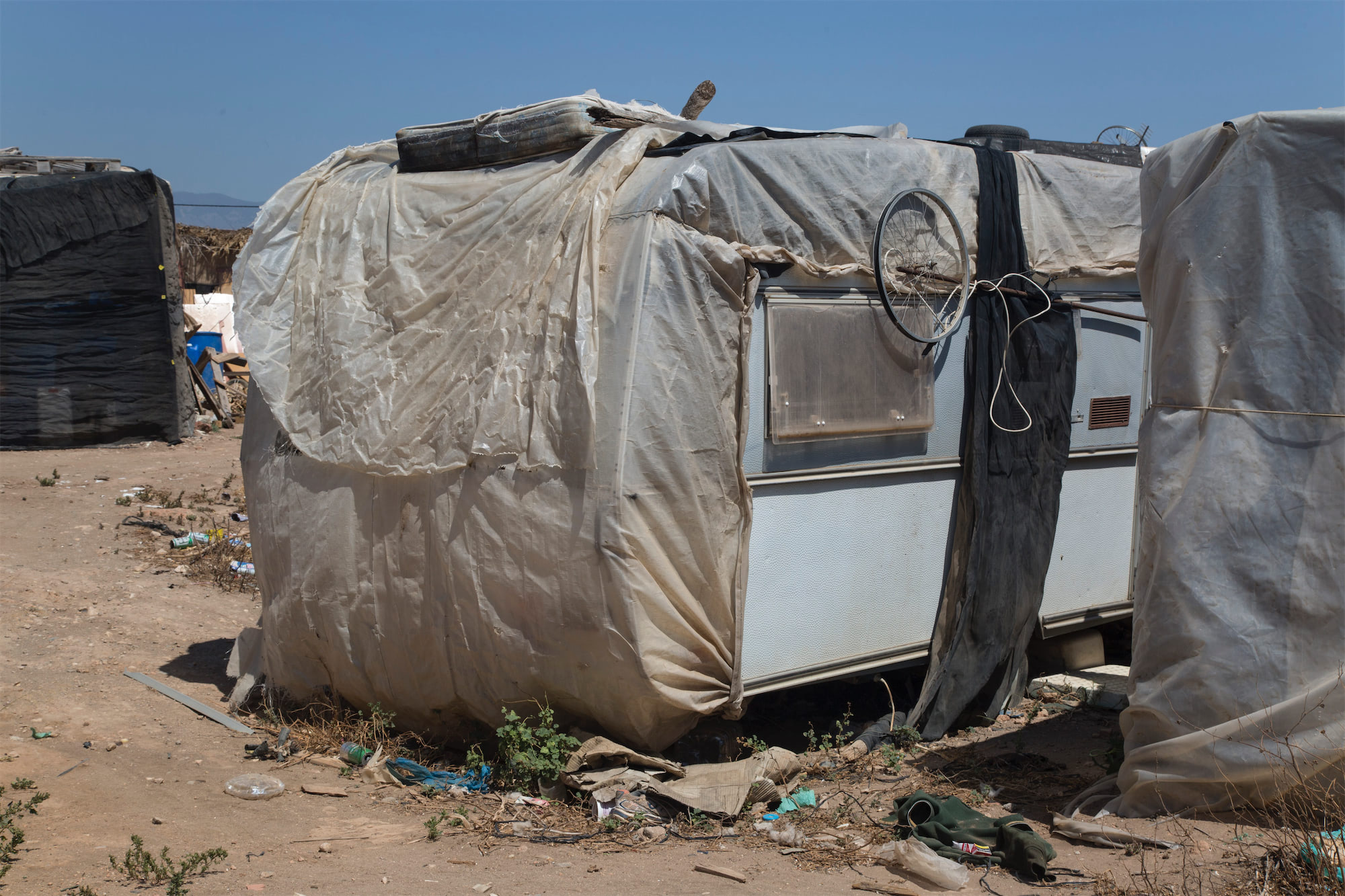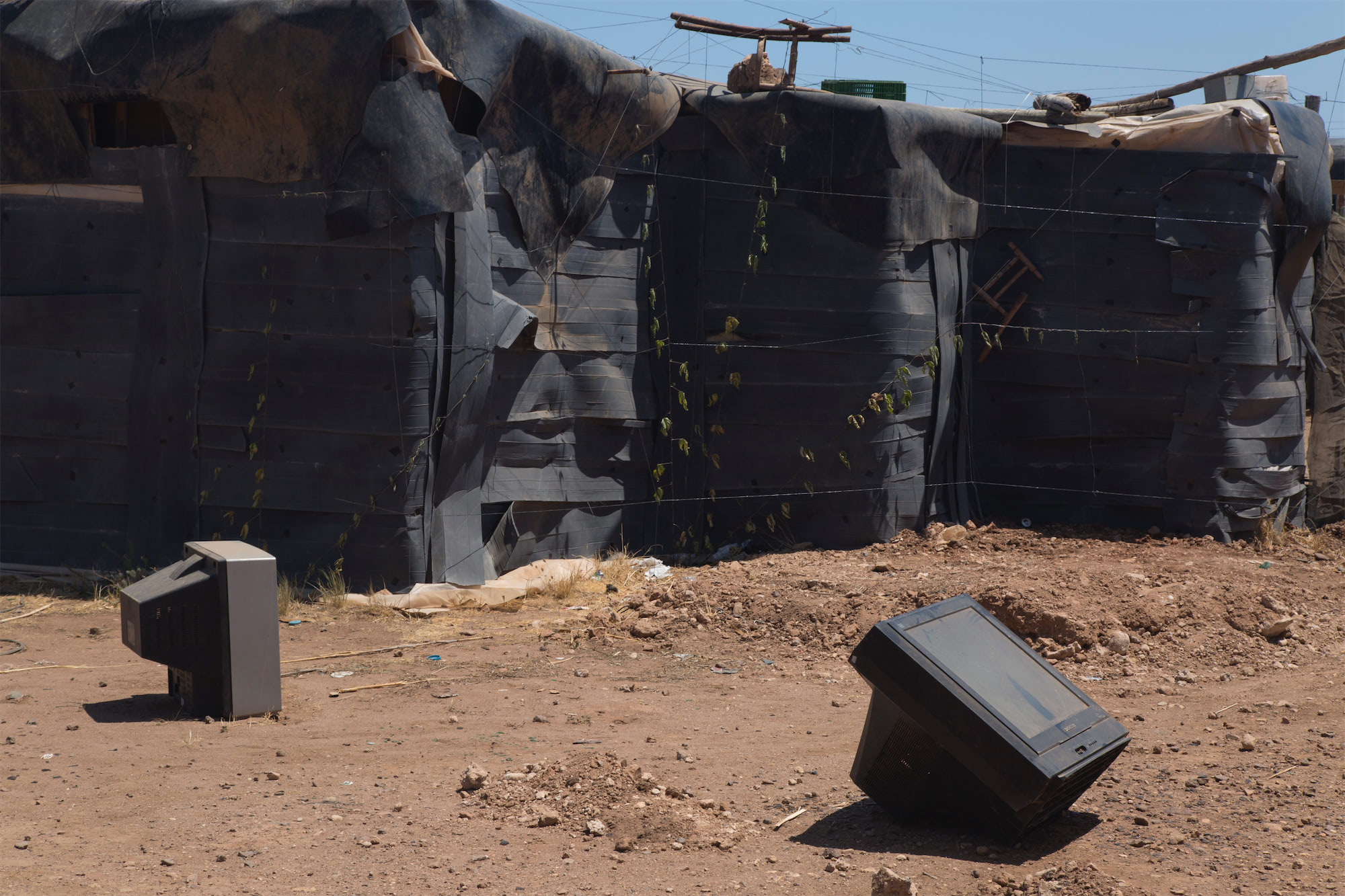LA FRAGILIDAD DE HABITAR
The waste – or rather, the debris – of the metropolitan and territorial order, inhabited by human masses stripped of civilian life, has its extreme spatial incarnation in the configuration of marginalised urban systems such as favelas, bidonvilles, «seas of plastic», refugee camps or areas excluded from the geopolitical ordering of the world, in which, as Zigmunt Bauman pointed out, «the production of the new deposits its waste».
However, these monstrous detritus of spatial design constitute, on the other hand, the accommodation of important laboratories or test for the contemporary production of the metropolitan body. Paradoxically, it is in the emergence of these huge spaces of informal urbanism that the most hopeful alternatives for disobeying the cartographies of power drawn up by the spatial programmes of neoliberal repression emerge. It is in the everyday life of the peripheries of the urban, or in the frontiers of territorial planning, produced and reduced to their condition of marginality by the administrative pressure of the state, where the most solid revolutionary expectations reside and where resistant responses capable of challenging the violent political management of subaltern spaces can still be found. The task of this project is to make them visible, to report their existence, to denounce their proscription and to reveal the intelligent precariousness of their technologies and aesthetics, but also to vindicate their subversive capacity and their potential for resistance.
Miguel Mesa del Castillo
Los deshechos -o mejor dicho, los escombros- del orden metropolitano y territorial, habitados por masas humanas despojadas de vida civil, tienen su encarnación espacial extrema en la configuración de sistemas urbanos marginalizados como favelas, bidonvilles, “mares de plástico”, campos de refugiados o áreas excluidas del ordenamiento geopolítico del mundo, en los que, como señalaba Zigmunt Bauman, “la producción de lo nuevo deposita sus residuos“.
Sin embargo, estos monstruosos detritus del diseño espacial constituyen, por otro lado, el alojamiento de importantes laboratorios o bancos de pruebas para la producción contemporánea del cuerpo metropolitano. Paradójicamente, es en la emergencia de estos enormes espacios de urbanismo informal donde emergen las alternativas más esperanzadoras para desobedecer a las cartografías del poder trazadas por los programas espaciales de la represión neoliberal. Es en la cotidianidad de las periferias de lo urbano, o en las fronteras del planteamiento territorial, producidas y reducidas a su condición de marginalidad por la presión administrativa del estado, donde residen la más sólidas expectativas revolucionarias y dónde aún se pueden encontrar respuestas resistentes capaces de desafiar la violenta gestión política de los espacios subalternos. La tarea de este proyecto es la de hacerlas visibles, notificar su existencia, denunciar su proscripción y desvelar la inteligente precariedad de sus tecnologías y estéticas, pero también la de reivindicar su capacidad subversiva y su potencial de resistencia.

